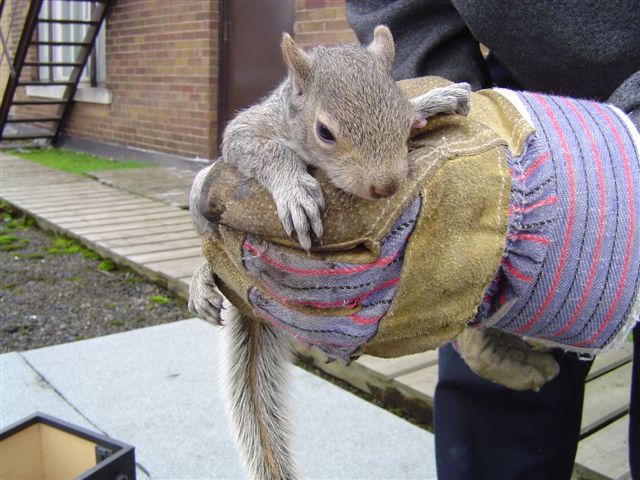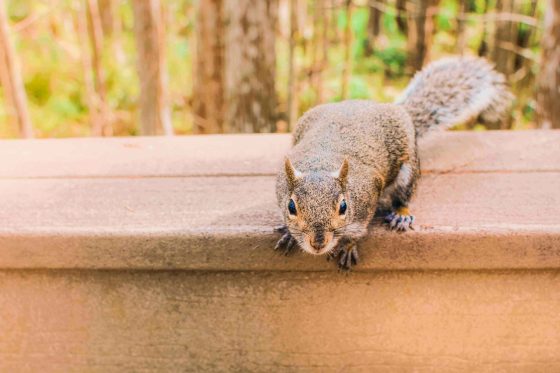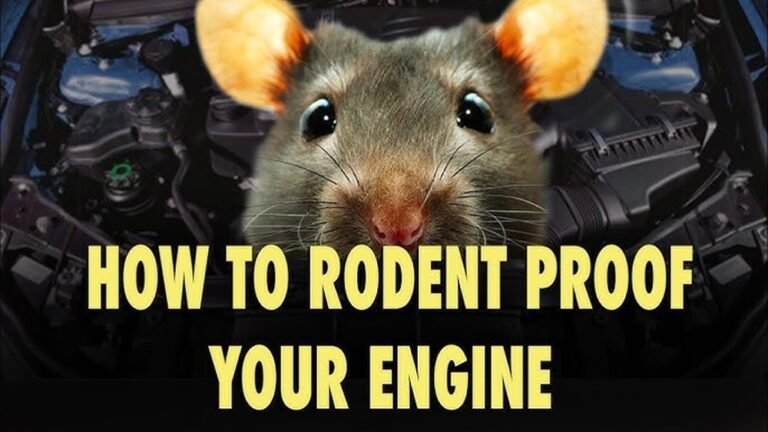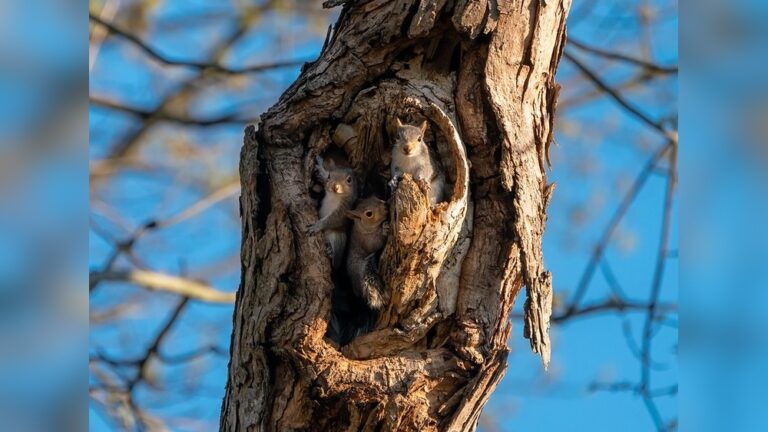Are Squirrels Dangerous: Shocking Truths You Need to Know
Have you ever spotted a squirrel darting across your yard and wondered, “Are squirrels dangerous?” These small, furry creatures might look harmless, but you could be surprised by what they’re capable of. Whether you have kids playing outside or pets roaming freely, understanding the risks squirrels might pose is important for your safety and peace of mind.
Keep reading to discover the hidden dangers squirrels could bring into your home and how to protect yourself and your loved ones.

Credit: www.skedaddlewildlife.com
Squirrel Behavior Patterns
Squirrel behavior patterns show how these animals act daily. Understanding their habits helps us know if they are dangerous. Squirrels live in many places, from parks to backyards. They have unique ways of moving, eating, and protecting themselves. Observing these actions can tell us a lot about their nature.
Knowing their behavior also helps avoid problems. Squirrels are not always harmful. But some actions might seem scary or risky. Learning about these patterns makes living near squirrels easier and safer.
Common Habits
Squirrels are active during the day. They spend time searching for food like nuts and seeds. They often hide food in many spots. This behavior is called caching. It helps them survive in winter. Squirrels climb trees quickly and jump from branch to branch. They use their sharp teeth to chew on wood or shells. These habits keep them busy and healthy.
Aggressive Signs
Squirrels usually avoid people and animals. But they may show aggression if threatened. Signs include loud chattering or tail flicking. They might lunge forward or bite. Such actions happen near their nests or food. Aggression is a way to protect themselves. Staying calm and giving space stops conflicts.
Territorial Nature
Squirrels mark and defend their home areas. They use scent and sounds to warn others. Territories keep enough food and shelter for one squirrel. Fighting can occur if others enter their space. This nature helps keep balance among local squirrels. Respecting their territory reduces dangerous encounters.
Health Risks From Squirrels
Squirrels look cute and harmless. But they can carry health risks for humans. Knowing these risks helps you stay safe around them.
Squirrels live close to people. They can spread diseases and cause injuries. Understanding these dangers is important for your health.
Disease Transmission
Squirrels can carry diseases like rabies and leptospirosis. These diseases spread through their saliva, urine, or droppings. Contact with squirrel waste or bites can pass germs to humans. Some diseases cause fever, rash, or serious infections. Avoid touching or feeding wild squirrels to reduce risks.
Bites And Scratches
Squirrels may bite or scratch if they feel threatened. Their sharp teeth and claws can break the skin. Bites can cause pain and infection. Scratches can also lead to bacteria entering the body. Clean any bite or scratch immediately with soap and water. Seek medical help if the wound shows redness or swelling.
Allergic Reactions
Squirrel fur, dander, and droppings can trigger allergies. Symptoms include sneezing, itching, and watery eyes. Some people may experience asthma attacks or skin rashes. Keep your home clean and avoid close contact with squirrels. Use allergy medicine if symptoms appear after exposure.
Squirrels And Property Damage
Squirrels can cause several problems around homes. Their natural behavior leads to property damage. Understanding the risks helps protect your house and belongings.
Squirrels use their sharp teeth and claws to chew and build nests. This can harm wooden structures, insulation, and wiring. The damage may be costly and dangerous.
Chewing Hazards
Squirrels chew on wood, plastic, and even metal. They do this to keep their teeth sharp. This chewing can ruin decks, fences, and siding. It also weakens window frames and doors. The damage may cause leaks and drafts in your home.
Nesting In Homes
Squirrels often build nests inside walls or attics. They gather leaves, twigs, and other soft materials. Their nests block vents and airways. This can lead to poor ventilation and bad smells. Nests may also attract other pests like insects or rodents.
Electrical Wire Risks
Squirrels chew electrical wires to create space for nests. This behavior is dangerous. It can cause short circuits and fires. Exposed wires also create a shock risk for people and pets. Repairing electrical damage can be expensive and urgent.

Credit: www.fantasticpestcontrol.co.uk
When Squirrels Become Dangerous
Squirrels usually seem harmless and playful. They dart around parks and backyards, adding life to the outdoors. But sometimes, squirrels can become dangerous. This happens under certain conditions that make them act aggressively or unpredictably.
Understanding when squirrels pose a risk helps you stay safe. It also helps protect the animals from harm. Below are common situations where squirrels can be dangerous.
Rabid Squirrel Incidents
Rabies is a virus that affects the brain. It makes animals very aggressive and dangerous. Though rare, squirrels can carry rabies. A rabid squirrel may bite or scratch without warning.
Watch for signs like unsteady movement or unusual aggression. Avoid touching squirrels that act strangely. Seek medical help if bitten by a wild squirrel.
Protective Mothers
Mother squirrels fiercely protect their babies. They may act aggressive near their nests. This behavior helps keep their young safe from threats.
Do not get close to squirrel nests. Avoid sudden movements or loud noises near them. Respecting their space lowers the risk of attacks.
Feeding And Human Interaction
Feeding squirrels can cause problems. They may lose fear of humans and become bold. Bold squirrels might bite or scratch to get food.
Human food is often bad for squirrels. It can harm their health and behavior. Let squirrels find natural food on their own.
Preventing Squirrel Problems
Preventing squirrel problems is key to protecting your home and garden. Squirrels can cause damage by chewing wires, nesting in attics, and raiding bird feeders. Simple steps can help keep these curious animals away. Follow practical tips to deter squirrels safely and keep your property secure.
Safe Deterrents
Use natural repellents like peppermint oil or vinegar sprays. These smells bother squirrels without harming them. Place motion-activated sprinklers near plants and entry points. Loud noises or sudden water sprays scare squirrels away. Avoid harmful chemicals that can injure pets or wildlife.
Securing Food Sources
Keep bird feeders out of squirrel reach or use squirrel-proof feeders. Store pet food and garbage in sealed containers. Clean up fallen fruits and nuts from your yard quickly. Removing easy food sources reduces visits from hungry squirrels. Protect your garden by using wire mesh around plants.
Professional Removal
Call wildlife experts for safe squirrel removal if problems persist. Professionals handle squirrels carefully and follow local laws. They can find nests and block entry points effectively. Avoid handling squirrels yourself to prevent bites or disease. Professional help ensures a lasting solution to squirrel issues.

Credit: www.baystatewildlife.com
Myths Vs Reality About Squirrels
Squirrels often cause mixed feelings. Some see them as cute and playful. Others think they are dangerous pests. Understanding the truth helps us live safely with them. Let’s explore common myths and the real facts about squirrels.
Common Misconceptions
Many believe squirrels attack people often. This is not true. Squirrels are shy and avoid humans. They do not chase or bite unless cornered.
Another myth is that squirrels carry many diseases. While they can carry some germs, the risk to humans is low. Squirrels rarely spread illness directly to people.
People also think squirrels damage homes on purpose. Squirrels chew wood and wires to sharpen teeth, not to destroy. Damage happens mostly when they nest inside buildings.
True Risks
Squirrels can bite if threatened or handled. Their teeth are sharp and can cause injury. Bites may lead to infections if untreated.
They may carry fleas, ticks, and mites. These pests can spread diseases to pets and people. Contact with squirrel droppings can also be risky.
Squirrels nesting in attics pose fire hazards. They often chew electrical wires, increasing fire chances. This is a real concern for homeowners.
Safety Tips
Do not feed or touch wild squirrels. Keep a safe distance to avoid bites. Teach children not to approach squirrels.
Seal holes and gaps in your home. This stops squirrels from entering attics or walls. Use metal mesh or sturdy materials to block access.
Keep your yard clean of food scraps. This reduces squirrel visits. Store trash in secure bins with lids.
How Smart Pets Lover Can Help You with Are Squirrels Dangerous
Learning From Squirrels: Practical Insights for Pet Parents
Understanding whether squirrels are dangerous opens a door to practical learning, especially when we look at their behavior patterns and the health risks they might carry. Observing squirrels in your yard can offer valuable lessons in wildlife interaction and property care. By recognizing signs of squirrel activity, you not only prevent potential property damage but also stay aware of when these creatures might pose a real threat.
At Smart Pets Lover, we believe every encounter with animals—wild or domestic—can deepen your connection to nature and improve your pet parenting skills. For instance, knowing the myths versus reality about squirrels helps in making informed decisions that protect your home and furry friends. If you ever feel uncertain about squirrel-related concerns, consulting local wildlife experts or animal control can provide tailored advice suited to your area.
Remember, learning about wildlife behavior is part of being a responsible pet parent. It’s where curiosity meets care, and every observation enriches your understanding—because with every wag, purr, and chirp, there’s a story worth knowing.
Frequently Asked Questions
Are Squirrels Harmful To Humans?
Squirrels rarely harm humans but may bite if threatened. They carry diseases like rabies, but infections are uncommon. Avoid feeding or handling wild squirrels to reduce risks. Generally, squirrels are more of a nuisance than a direct danger.
Can Squirrels Transmit Diseases To Pets?
Yes, squirrels can transmit diseases like tularemia and rabies to pets. Pets may get infected through bites or contact with squirrel droppings. Keep pets away from squirrels and consult a vet if exposure occurs to prevent health issues.
Do Squirrels Cause Property Damage?
Squirrels often damage property by chewing wires, insulation, and wood. They build nests in attics, causing noise and structural problems. Early detection and exclusion methods can prevent costly repairs and keep homes safe from squirrel damage.
How To Stay Safe Around Squirrels?
Avoid feeding or touching squirrels to prevent bites and disease risks. Use barriers to keep them away from living spaces. Wash hands after outdoor activities near squirrels to maintain hygiene and safety.
Conclusion
Squirrels usually do not cause serious harm to people. They can bite or scratch if they feel scared. These animals carry some germs, so avoid touching them. Most squirrels prefer to stay away from humans. Watching them can be fun and safe from a distance.
Keep your home and garden clean to prevent problems. Understanding squirrels helps you stay safe and calm. Stay aware, but no need to fear these small creatures.





